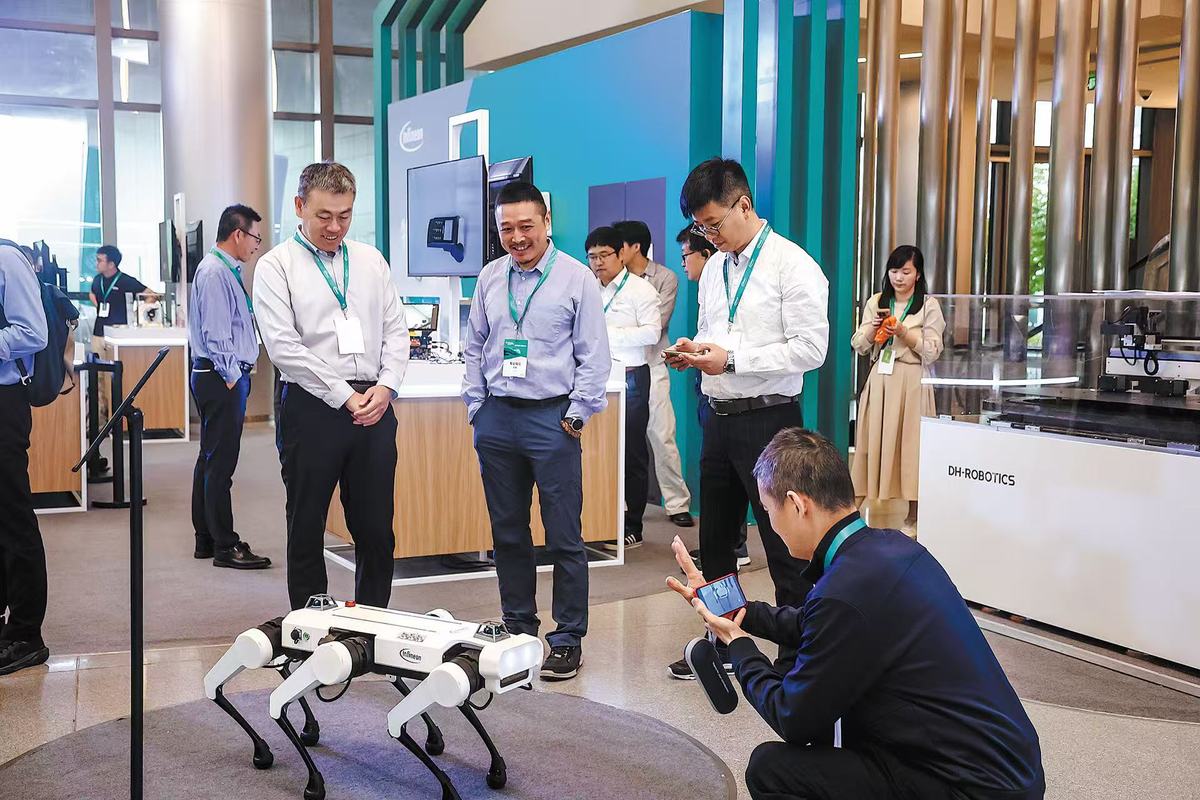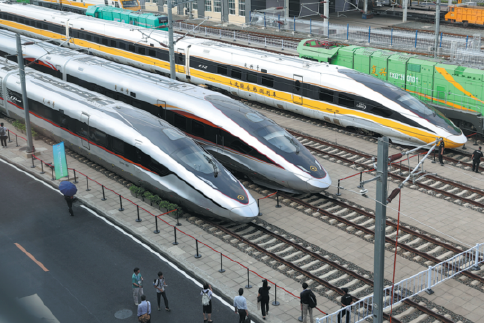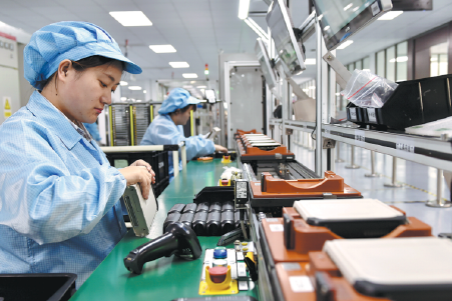Infineon revved up on NEV chip needs

Infineon Technologies AG sees abundant growth opportunities from China's burgeoning development in new energy vehicles, humanoid robots and artificial intelligence, after the world's top automotive chipmaker recorded a three-decade success story in the country, a senior executive said.
Andreas Urschitz, a member of the management board and chief marketing officer of Infineon Technologies AG, said in an exclusive interview with China Daily that "China has always been a very strategic market for Infineon and will remain a growth region going forward."
Urschitz emphasized China's significance to Infineon, noting that the country now contributes over one-third of the German company's global revenue.
He said the tech firm plans to further strengthen its innovation ecosystem in China, pushing forward its "In China, for China" localization strategy, particularly in driving decarbonization and digitalization — key areas where Infineon's semiconductor solutions play a foundational role.
For instance, Infineon plans to increase local production of general-purpose semiconductors in China to better address customer needs regarding supply resilience.
"There is no carbon neutrality without chips from Infineon. China has become an innovation driver in technologies such as renewable battery storage, electric vehicles and also robots over the years, which align with Infineon's mission to drive sustainable innovation."
Infineon has been the world's top automotive semiconductor supplier for five consecutive years, with its share in the Chinese market hitting around 15 percent.
"We are very proud of this development, which wouldn't have been possible without the innovation spirit of Chinese car makers, tier-one suppliers and ecosystem partners," Urschitz said, adding that he credited collaborative efforts across the industry for making EVs more affordable today, and that Chinese EVs are often cheaper than traditional internal combustion engine vehicles.
"This affordability is a game-changer for consumers globally," Urschitz said. "It combines superior user experience with long-term cost savings and reduced carbon footprints — a win-win for everyone."

Zhang Yongwei, secretary-general of China EV100, a major Chinese auto industry think tank, said: "China's new energy vehicle sales are expected to hit 16.5 million units in 2025, achieving a growth rate of roughly 30 percent from 2024. The domestic NEV market will comprise 15 million units, supplemented by exports exceeding 1 million units, which will provide rosy opportunities for foreign and Chinese companies alike."
As artificial intelligence becomes the most exciting concept in the tech world, Urschitz also addressed Infineon's critical role in AI infrastructure. Data centers currently consume 2-3 percent of global electricity, a figure projected to rise to 8 percent with the steep rise of AI being used virtually everywhere, the senior executive said, adding that Infineon's energy-efficient power semiconductors help ensure optimal energy use in these power-hungry facilities.
"Only a few people realize how much energy AI demands," he said. "Our semiconductors enable data centers to operate at peak efficiency, reducing their environmental impact while meeting growing computational needs."
Discussing emerging technologies, Urschitz pointed to Infineon's contributions to humanoid robotics. The company provides a string of products such as microcontrollers and sensors that enhance robots' contextual awareness and movement efficiency.
"A typical humanoid robot has dozens of motors, requiring significant power. Our chips allow for lighter, more agile designs, making these robots more practical for everyday applications, such as service robotics."
Urschitz said he was wowed by AgiBot, a Shanghai-based robotic startup which is also Infineon's customer. At AgiBot's robot training center in its Shanghai factory, 100 humanoid robots learn to pour tea, fold laundry and arrange tables in simulated everyday environments — from cafes to living rooms.
masi@chinadaily.com.cn




































